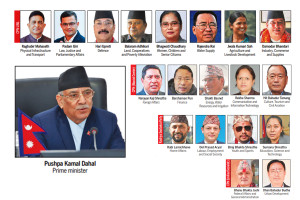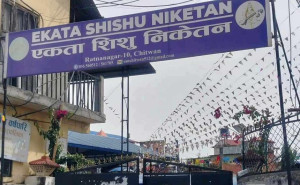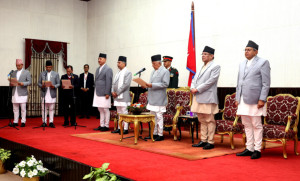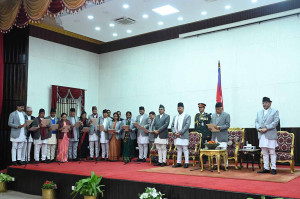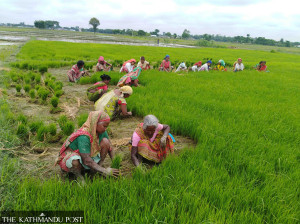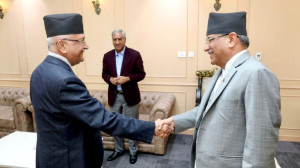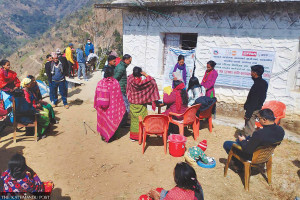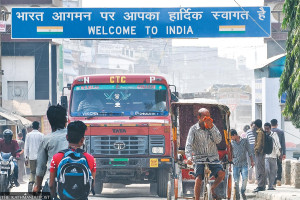 19.12°C Kathmandu
19.12°C KathmanduNational
Sudurpaschim Cabinet gets poor annual report card
While chief minister counts many achievements, his cabinet has been criticised, even by ruling party assembly members, for failing on all fronts.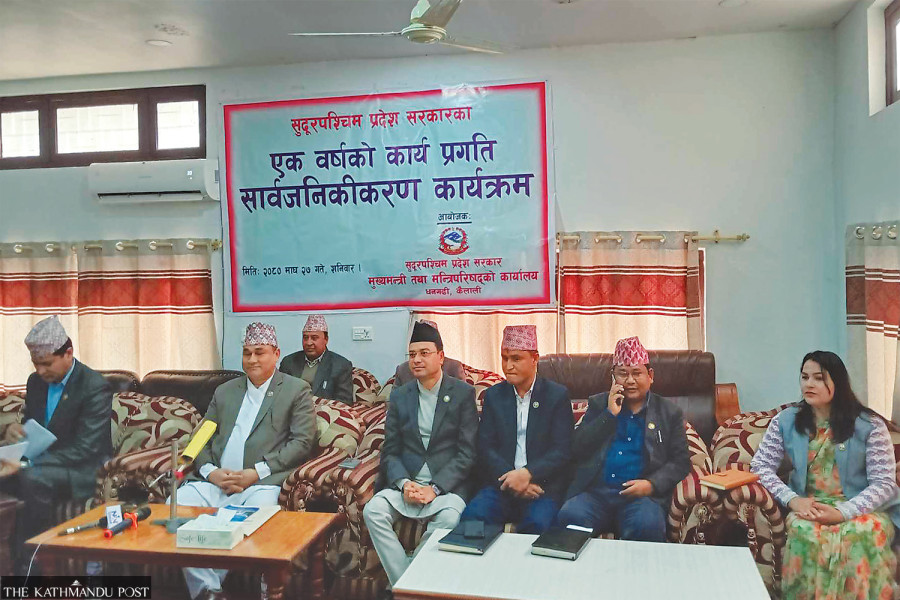
Arjun Shah
The Sudurpaschim provincial government has completed a year. On that occasion, Chief Minister Kamal Bahadur Shah organised a press meet in Dhangadhi on Saturday.
Flanked by his ministers and secretaries, Chief Minister Shah spent most of his time recounting his government’s achievements, or what he perceived as achievements, which included even mandatory functions such as daily administrative works, regular meetings and visits.
The meetings of provincial chief ministers, national council for disaster risk reduction and management, and provincial and local governance support programmes all made it to Shah’s list of achievements.
Shah, of course, wouldn’t leave out the three-day international conference on ‘Manaskhand: Inevitability of Integrity for Internalizing Civilizational and Cultural Connectivity between Nepal and India’ and ‘First Khaptad International Spiritual Conference’ from his list.
He even claimed to have visited the sites of various development projects, proposed development projects such as Seti River-VI, West Seti, Betan Karnali and given instructions for their timely completion.
Shah, who is the Nepali Congress provincial assembly leader, was appointed Sudurpaschim chief minister on February 9, 2023 as per Article 168(3) of the constitution after CPN-UML’s Rajendra Singh Rawal failed to garner a vote of confidence. The present executive is the coalition government of the Congress, CPN (Maoist Centre), CPN (Unified Socialist) and the Nagarik Unmukti Party.
But is there anything remarkable about Shah’s tenure as he has claimed?
Even the ruling party members rule that possibility out.
“My own party leads the provincial government but I have to say it has yet to score any significant achievements,” said Congress provincial assembly member Prakash Bam. “The government attained good experience of parliamentary democracy in the past one year.”
For one thing, the government has been criticised for ‘centralising’ development, ironic for an entity established after the country adopted federalism to decentralise governance.
Most of the provincial assembly members are dissatisfied after the provincial Ministry of Physical Infrastructure Development did not include even a single multi-year development project outside of Dhangadhi, the provincial capital, among 19 similar projects launched.
“The government, which appears focused only on Dhangadhi’s development, has failed for the proportionate development of the entire province,” said Meghraj Khadka, another provincial assembly member of the Congress.
Moreover, the provincial government has been criticised for its failure in executing effective works—on the administrative, developmental and legislative fronts. Many say the executive works were hampered by the battle between the provincial assembly and the government.
The government had a tough time passing the annual budget for the current fiscal year 2023-24. Even the Congress assembly members strongly stood against the budget. According to a Congress assembly member who spoke on the condition of anonymity, party President Sher Bahadur Deuba had to write to the assembly members to allow the annual budget to pass.
The provincial assembly almost ran without business for the past year as the government did not bring any bills. “Not even a single bill was tabled in the assembly in a year,” said Speaker Bhim Bahadur Bhandari. “Some acts have been amended during this time. The government is supposed to make the assembly vibrant but that’s not what we have seen so far.”
In the 53-member assembly, the Nepali Congress has 19 members, the Unified Socialist three, and there’s a independent lawmaker, while the CPN-UML has nine lawmakers, the Maoist Centre 10, the Nagarik Unmukti Party seven, and the Rastriya Prajatantra Party one.
Ironically, during the assembly meetings, the ruling party members seem more vocal against the provincial government.
Santosh Kumari Sharma Thapa, the UML’s deputy leader in the provincial assembly, says the present government is extremely irresponsible.
“The government has not given any business to the assembly,” she said. “The acts, rules and regulations are not implemented effectively. The government has been irresponsible and helpless.”
She added, “The provincial government’s activities are mainly responsible for the increasing frustration regarding federalism.”











